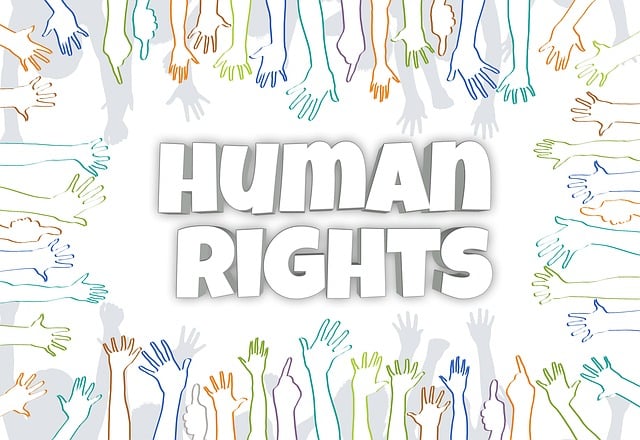The Impact of Mandatory Minimum Sentences dramatically affects criminal justice globally, with a "one-size-fits-all" approach often leading to harsh punishments. Criminal defense lawyers play a vital role in negotiating alternatives for first-time offenders and non-violent crimes. This shifts their focus towards plea bargains over trials, balancing leniency advocacy with procedural fairness. In cases like white-collar crime, attorneys strategize during investigations, challenge evidence, and present mitigating factors to secure fair outcomes despite strict sentencing laws. Their success in jury trials demonstrates the power of robust defense, leading to reduced sentences or acquittals while avoiding harsh consequences.
“Unraveling the complex web of mandatory minimum sentences, this article delves into their profound impact on criminal defense. From shaping legal strategies to influencing case outcomes, these rigid sentencing laws pose significant challenges for attorneys. We explore how the legal perspective on mandatory minima affects advocacy efforts in mitigating severe punishments. Understanding these dynamics is crucial for navigating a system where the consequences can be life-altering.”
- Understanding Mandatory Minimum Sentences: A Legal Perspective
- Impact on Criminal Defense Strategies and Case Outcomes
- Challenges for Attorneys in Navigating Strict Sentencing Laws
- Effectiveness of Advocacy in Mitigating Severe Punishments
Understanding Mandatory Minimum Sentences: A Legal Perspective

Mandatory minimum sentences have become a significant aspect of criminal justice systems worldwide, with the idea being to ensure consistent and fair punishment for specific crimes. These sentences are predetermined by law and often act as a one-size-fits-all approach, mandating specific terms for convicted individuals, regardless of extenuating circumstances. From a legal perspective, understanding these mandatory minimums is crucial for both prosecuting attorneys and criminal defense lawyers.
The impact of mandatory minimum sentences on clients varies greatly. For his clients, these laws can either provide a sense of justice and safety within the community or result in overly harsh punishments that don’t consider individual circumstances. The general criminal defense strategy often involves negotiating with prosecutors to seek alternatives or mitigations, especially when dealing with first-time offenders or non-violent crimes. This process is vital to ensuring fairness and preventing disparities in sentencing, which has become a significant concern within the legal and philanthropic and political communities.
Impact on Criminal Defense Strategies and Case Outcomes

The role of Criminal Defense Attorneys is increasingly complex due to the impact of mandatory minimum sentences on criminal defense strategies. These rigid sentencing guidelines significantly alter the approach lawyers take for their clients, who range from corporate executives to individuals facing life-altering charges. Lawyers must now navigate a landscape where negotiation and plea bargains often become the primary means to achieve favorable outcomes, rather than lengthy trials.
The presence of mandatory minimum sentences places pressure on attorneys to find creative legal strategies. This shift can lead to more efficient case management but may also result in reduced opportunities for mitigating circumstances. For his clients, this means a delicate balance between advocating for leniency and ensuring procedural fairness, especially considering the wide range of cases handled by these respective businesses. The impact extends beyond the courtroom, influencing the overall justice system and its perception among the community.
Challenges for Attorneys in Navigating Strict Sentencing Laws

Criminal defense attorneys face significant challenges when navigating strict sentencing laws, particularly in cases involving mandatory minimum sentences. These laws, designed to promote consistency and deterrence, often result in harsher punishments for offenders, regardless of individual circumstances. The impact of mandatory minimum sentences is profound, especially in white-collar and economic crime cases, where the focus is typically on rehabilitation and restitution rather than punitive measures.
Attorneys must strategize across all stages of the investigative and enforcement process to avoid indictment and mitigate potential penalties. This includes meticulous case evaluation, identifying legal defenses, and negotiating with prosecutors. A successful defense strategy may involve challenging the admissibility of evidence, questioning the integrity of investigations, or presenting mitigating factors to sway judges during sentencing. By understanding the nuances of these laws and employing creative legal tactics, attorneys can help clients navigate the complex landscape of criminal justice, ensuring fair outcomes in an increasingly stringent legal environment.
Effectiveness of Advocacy in Mitigating Severe Punishments

The effectiveness of advocacy plays a pivotal role in mitigating severe punishments for individuals facing criminal charges, especially under the current legal landscape where mandatory minimum sentences are prevalent. Criminal defense attorneys act as powerful advocates, utilizing their expertise to challenge these stringent penalties. By presenting compelling arguments and gathering strong evidence, they can significantly alter the outcome for their clients.
In cases involving white-collar and economic crimes, an attorney’s ability to navigate complex legal systems is crucial. An unprecedented track record of success in jury trials demonstrates the impact of robust defense strategies. These attorneys employ various tactics to ensure their clients receive fair judgments, often securing reduced sentences or even acquittals. Their advocacy ensures that justice is served without imposing unduly harsh consequences.
The impact of mandatory minimum sentences on criminal defense strategies is profound, demanding that attorneys navigate intricate legal landscapes to advocate for their clients. By understanding these strict sentencing laws and their effects on case outcomes, lawyers can develop robust defenses and mitigate severe punishments. This approach not only ensures effective advocacy but also highlights the critical role of criminal defense attorneys in a system where consequences can be draconian. The discussion underscores the need for informed strategies to challenge mandatory minimums, ultimately aiming to achieve just and proportional sentences.






